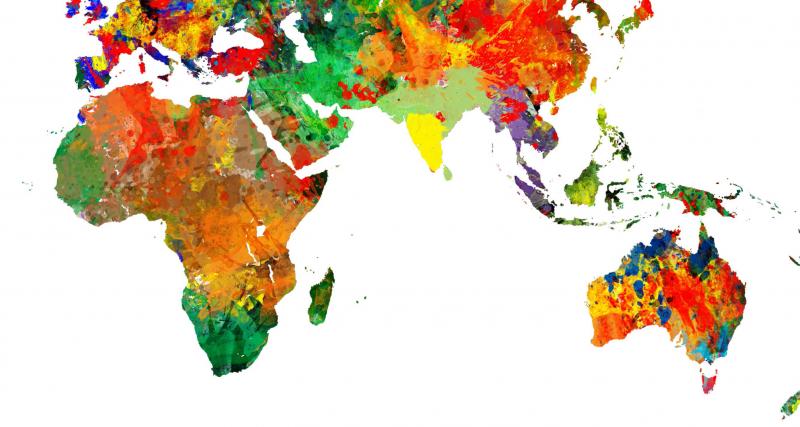
Making a Global Impact
The
According to International Student and Scholar Services, a unit within Illinois International, 3,243 new international students enrolled in the University last fall, making the total enrollment of international students at
The
“Increasing our population of international students is a personal passion of mine, and the college leadership shares my interest,” Dr. An said. “They recognize that international collaboration is critical to the long-term growth of AHS.”
During frequent trips to
The IGMP brings Chinese students at the master’s and doctoral levels to AHS for a full semester. Each student is paired with a mentor who closely supervises the student’s activity. The students are required to work 20 hours a week in their mentor’s lab and to audit at least two courses. They attend weekly academic workshops that focus on academic writing, English skills, research design, and quantitative analysis. By the end of their time in the College, the student must co-author at least one article that is publishable in a peer-reviewed journal. They also must make a final presentation of their research.
Last fall, the first cohort of six master’s students and one PhD student from the Shanghai University of Sport and one master’s student from
“Under the supervision of my mentor, I wrote two papers independently and participated in two other papers,” he said. “This laid a good foundation for my future academic research.”
The mentors are critical to the success of the program. Currently, six professors in the Department of Kinesiology and Community Health serve as mentors. In addition to Dr. An, they include Dr. Chung-Yi Chiu, Dr. Manuel Hernandez, Dr. Yih-Kuen Jan, Dr. Shannon Mejía, and Dr. Kevin Richards.
Claudia Lu, a PhD student in the Shanghai University of Sport School of Kinesiology, said she will stay in close touch with her mentor, Dr. Chiu. “My mentor is an important person who can guide me, help me, take me under her wing, and nurture my academic quest,” she said.
To join the IGMP, Mr. Qiu, Ms. Lu, and the other students had to apply at their home universities, where the initial screening was done. Once a pool of qualified candidates was identified, Dr. An conducted in-person interviews with the candidates and made the final selection. The home university pays the expenses of the participating students, so leaders are keenly interested in ensuring that their best students participate. Sending students abroad to prestigious
As to the benefits to AHS, Dr. An says building relationships with international universities can foster collaboration between scholars here and abroad. The IGMP generates revenue for the College. Perhaps most importantly, it may attract potential students to PhD programs and postdoctoral research positions in AHS.
And while the main benefits for the students revolve around their development as scholars, they also experience personal growth from extracurricular activities such as field trips and parties. As Zhi Zheng said, “The most valuable thing to me is to think independently and solve problems effectively. But I also need to coordinate the relationship between study and life.”
Fifteen students from Chinese universities, including
AHS Offers “Summer Camp,” Too
In addition to the International Graduate Mentor Program, the
Last summer, 22 master’s and PhD students from Beijing Normal University and Tsinghua University learned about the US system of higher education and the University of Illinois. They took field trips, visiting local K-12 schools, for example, and attended lectures on research methodology and hot research topics by faculty in the Department of Kinesiology and Community Health and the Department of Recreation, Sport and Tourism. As many of the students were interested in athletic training, they also engaged in a variety of sports-related activities.
Dr. An says the GATP serves as a recruiting tool, with its main mission being to promote the University of Illinois and the College of Applied Health Sciences to participants. As with the IGMP, the majority of attendees’ expenses are paid by their home universities.
